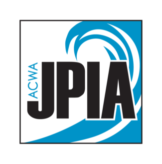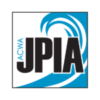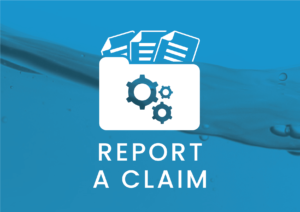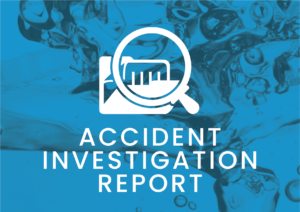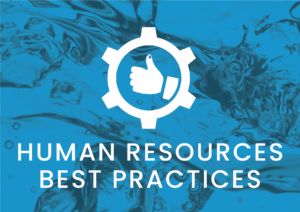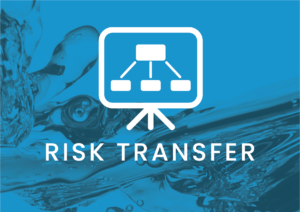SERVICES
JPIA provides much more than just peace of mind. In addition to insurance services, you can turn to us for a wealth of information designed to provide your agency with helpful resources designed to keep your employees safe and your agency compliant with constantly changing human resource regulations.
JPIA provides much more than just peace of mind. In addition to insurance services, you can turn to us for a wealth of information designed to provide your agency with helpful resources designed to keep your employees safe and your agency compliant with constantly changing human resource regulations.
Cybersecurity Resources
Cybersecurity is a growing and evolving risk impacting the public sector, including water districts.
Cybersecurity Resources
Cybersecurity resources can be found in Section 26 – Water/Wastewater Security of the Risk Control Manual.
2023 Additional Cybersecurity Services: KnowBe4 and KYND – FAQ
Cyber Insurance – Frequently Used Acronyms
Cyber Security Resources
Cyber security is a growing and evolving risk impacting the public sector, including water districts.
Cyber security resources can be found in Section 26 – Water/Wastewater Security of the Risk Control Manual.
Employment Practices Hotline
An exclusive benefit for JPIA Liability Program Members
Employment Practices Hotline
an exclusive benefit for JPIA Liability Program Members
Risk Transfer
The JPIA provides guidance and best practices to its members regarding Risk Transfer. The following tools are a compilation of resources to provide recommendations many of our members rely upon. This guide assists member agencies developing proper indemnification and insurance provisions to minimize unwanted financial exposures caused by liability assumed under contract.
Insurance pools and programs provide these model guidelines based on their experience and other resources and factors. It is intended as a reference point for our members. These guidelines are not meant to create or suggest absolute requirements. Flexibility and understanding must be tempered with good judgment in establishing provisions that are agreeable and attainable for those involved in the process, the district and the entity with which it is contracting.
These tools are designed to encourage member agencies to utilize written contracts with proper indemnification and insurance requirements. The suggested guidelines and information provided in these tools are not legal advice. The members of JPIA are encouraged to review the information with their own legal counsel before finalizing any contract or agreement.
Water districts can find themselves dealing with a variety of outsourced activities that could create potential risks and legal liabilities. JPIA provides guidance for a number of situations most likely to be encountered. Here you will find a listing of these scenarios, along with sample contracts and additional insurance policy endorsements that may be needed. JPIA strongly encourages each member agency to consult with its own legal team for advice on incorporating or utilizing these guidelines.
Recommended Insurance Requirements & Indemnification ClausesRisk transfer is designed to minimize potential liability exposure of the member agency by transferring legal and financial responsibility for losses to the party best able to control those risks. This helps the member agency avoid costly claims.
The process of risk transfer typically takes place when hiring an outside vendor to complete work on behalf of the agency, or when allowing agency property or facilities to be used by outside parties.
As with any complicated insurance issues, there are years of legal precedent and case studies guiding agencies on how to best protect themselves from liability. JPIA provides additional resources for those desiring a more detailed and in-depth examination of these issues. This information should not be construed as legal advice, but rather an opening point for each member agency to discuss these risk transfer issues with its own legal counsel.
https://alliant.com/news-resources/insurance-requirements-in-contracts-iric-manual/
While guidelines form an excellent basis in risk reduction, all of that work could be lost if all related paperwork is not completed properly. JPIA provides a checklist so each member agency can verify that every “i” is dotted and “t” is crossed, thereby ensuring that liability is truly transferred away from the agency and onto the third party as intended.
Risk Transfer
The JPIA provides guidance and best practices to its members regarding Risk Transfer. The following tools are a compilation of resources to provide recommendations many of our members rely upon. This guide assists member agencies developing proper indemnification and insurance provisions to minimize unwanted financial exposures caused by liability assumed under contract.
Insurance pools and programs provide these model guidelines based on their experience and other resources and factors. It is intended as a reference point for our members. These guidelines are not meant to create or suggest absolute requirements. Flexibility and understanding must be tempered with good judgment in establishing provisions that are agreeable and attainable for those involved in the process, the district and the entity with which it is contracting.
These tools are designed to encourage member agencies to utilize written contracts with proper indemnification and insurance requirements. The suggested guidelines and information provided in these tools are not legal advice. The members of JPIA are encouraged to review the information with their own legal counsel before finalizing any contract or agreement.
Water districts can find themselves dealing with a variety of outsourced activities that could create potential risks and legal liabilities. JPIA provides guidance for a number of situations most likely to be encountered. Here you will find a listing of these scenarios, along with sample contracts and additional insurance policy endorsements that may be needed. JPIA strongly encourages each member agency to consult with its own legal team for advice on incorporating or utilizing these guidelines.
Recommended Insurance Requirements & Indemnification ClausesRisk transfer is designed to minimize potential liability exposure of the member agency by transferring legal and financial responsibility for losses to the party best able to control those risks. This helps the member agency avoid costly claims.
The process of risk transfer typically takes place when hiring an outside vendor to complete work on behalf of the agency, or when allowing agency property or facilities to be used by outside parties.
As with any complicated insurance issues, there are years of legal precedent and case studies guiding agencies on how to best protect themselves from liability. JPIA provides additional resources for those desiring a more detailed and in-depth examination of these issues. This information should not be construed as legal advice, but rather an opening point for each member agency to discuss these risk transfer issues with its own legal counsel.
https://alliant.com/news-resources/insurance-requirements-in-contracts-iric-manual/
While guidelines form an excellent basis in risk reduction, all of that work could be lost if all related paperwork is not completed properly. JPIA provides a checklist so each member agency can verify that every “i” is dotted and “t” is crossed, thereby ensuring that liability is truly transferred away from the agency and onto the third party as intended.
